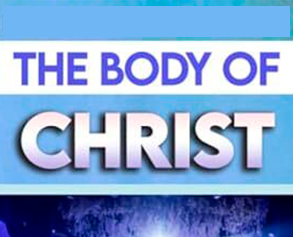
- Instructor: Admin
- Lectures: 5
- Quizzes: 5
- Students: 1004
Overview:-
In summary, a Biblical Theology of the Holy Spirit course traces the role of the Spirit from Genesis to Revelation, emphasizing His involvement in creation, salvation, sanctification, and eschatology, and examining His ongoing work in the life of the Church and the believer. The course would integrate Scripture, historical theology, and contemporary implications for Christian life and ministry. For further in-depth study, we recommend among other textbooks which you can buy from the bookstore: FELLOWSHIP WITH THE HOLY SPIRIT: Understanding The Communion With The Consuming Fire Power Of God by DR. ABRAHAM PETERS.
HOLY_SPIRIT_PNEUMATOLOGY_BASIC_BIBLE_DOCTRINE_FREE_ONLINE_COURSE_Q_AND_A_
INTRODUCTION:-
A Biblical Theology of the Holy Spirit basic course is introduction to explores the role, work, and presence of the Holy Spirit throughout the Bible. Here’s a summary of key themes that would be covered:
Introduction to the Holy Spirit in Scripture:
– The Holy Spirit is central to Christian belief and is understood as the third person of the Trinity—alongside the Father and the Son.
– The study begins by acknowledging the Spirit’s presence from Genesis through Revelation, focusing on how the Spirit works in the Old and New Testaments.
The Holy Spirit in the Old Testament
– The Spirit is introduced in Genesis, where the Spirit of God moves over the waters during creation (Genesis 1:2).
– The Holy Spirit empowers individuals for specific tasks, such as Bezalel for constructing the tabernacle (Exodus 31:3), and the judges like Samson (Judges 13-16).
– The Spirit is seen in the prophetic ministry, with prophets being moved by the Spirit to speak God’s words (e.g., Ezekiel 2:2, Isaiah 61:1).
The Holy Spirit in the Ministry of Jesus
– The Holy Spirit plays a key role in the life of Jesus Christ, from his conception (Matthew 1:18) to his baptism (Matthew 3:16) and the empowerment of his earthly ministry (Luke 4:14).
– Jesus also speaks of the coming of the Spirit after His departure, promising the Spirit as the “Paraclete” or Comforter (John 14:16-17).
– The Holy Spirit is involved in the resurrection of Jesus (Romans 8:11).
The Holy Spirit in the Early Church
– The book of Acts demonstrates the outpouring of the Holy Spirit at Pentecost (Acts 2), marking the beginning of the Church and the spread of the Gospel.
– The Spirit continues to empower believers for ministry, bringing about signs and wonders, and guiding the early Christian community (Acts 4:31, Acts 13:2-4).
– The gifts of the Spirit, such as speaking in tongues, prophecy, and healing, are emphasized (1 Corinthians 12-14).
The Holy Spirit’s Role in Salvation
– The Holy Spirit convicts people of sin (John 16:8) and regenerates them, making them new creations in Christ (John 3:5-8).
– The Spirit also sanctifies believers, helping them grow in holiness and Christ-likeness (Romans 8:13).
– The Spirit’s indwelling is a sign of God’s ownership and promises the future resurrection (Romans 8:9-11).
The Holy Spirit’s Ongoing Work in the Believer
– The Spirit guides believers into all truth (John 16:13), empowers them to live righteously, and enables them to produce the fruits of the Spirit (Galatians 5:22-23).
– The course highlights the relationship between the Holy Spirit and the believer, emphasizing prayer, worship, and spiritual growth through the Spirit.
The Eschatological Role of the Holy Spirit
– The Holy Spirit is also associated with the future hope of Christians, especially in relation to the second coming of Christ (Revelation 22:17).
– The Spirit is seen as a down payment or guarantee of the believer’s inheritance and the final restoration of all things (Ephesians 1:13-14).
Challenges and Controversies
– A basic course on the Holy Spirit also engages with the diverse theological perspectives on the gifts of the Spirit, such as speaking in tongues or prophecy, especially in light of contemporary debates.
– Discussion of the role of the Holy Spirit in various denominations and the theological implications of the Spirit’s work in the Church today.
Curriculum
- 1 Section
- 5 Lessons
- Lifetime
- Modules10
- 1.1The Holy Spirit in the Old Testament
- 1.2The Holy Spirit in the Old Testament5 Questions
- 1.3The Holy Spirit as the Third Person of the Trinity
- 1.4The Holy Spirit as the Third Person of the Trinity5 Questions
- 1.5The Gifts and Fruit of the Holy Spirit
- 1.6The Gifts and Fruit of the Holy Spirit5 Questions
- 1.7The Holy Spirit in the Christian Life
- 1.8The Holy Spirit in the Christian Life5 Questions
- 1.9The Work of the Holy Spirit in the Past and Present
- 1.10The Work of the Holy Spirit in the Past and Present5 Questions





